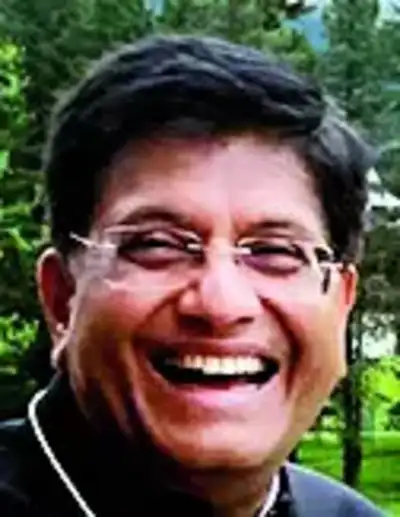ARTICLE AD BOX

DUBAI: Commerce and industry minister Piyush Goyal is headed to the US Monday to take forward talks for a bilateral trade deal, signaling the proposed agreement is moving ahead after a hiatus of several weeks."The delegation plans to take forward the discussions with a view to achieve early conclusion of a mutually beneficial trade agreement," an official statement said. Last week a team of American officials led by assistant USTR Brendan Lynch was in New Delhi where both countries vowed to intensify efforts for a trade deal.This the first ministerial level dialogue between the two countries after trade talks collapsed over contentious issues .While India's red lines over farm and dairy stay, there is also growing realisation that the talks with the US following 50% tariffs need to take a different approach from other negotiations where reciprocity has always been the key parameter. Goyal's visit to the US for talks was earlier announced by the US ambassador designate to India. Given US President Donald Trump's strategy, countries across the world are realising the need to focus on comparative advantage vis-a-vis rivals.
While the first step will be to find a solution to the 25% secondary tariffs on India, ostensibly for its purchase of Russian crude, the next focus will be to negotiate a deal that puts India at level with other countries, given that its exports face 25% reciprocal tariffs compared to sub-20% for its key competitors. "What India is currently facing is nearly an embargo on several of its exports, even as other countries have managed to negotiate deals that seek to ensure that their goods are able to compete favourably," said a source in govt.
Although govt has maintained that more than half of India's exports, including critical ones such as electronics and pharma, are outside the ambit of tariffs, sectors such as seafood, textiles and leather and footwear shipments are facing rough weather with exporters having to hand out steep discounts to retain clients.Until talks collapsed over the issue of farm and dairy, and allowing genetically modified products, govt was seeking to find a solution to the issue for sectoral tariffs for segments such as automobiles, auto parts, steel and aluminum. But it will be required to offer greater space in the talks now. At the same time, apart from offering concessions, govt will also have to identify product categories where it will substitute the import of goods from other countries, including products such as oil and gas.



.png)
.png)
.png)
















 1 hour ago
7
1 hour ago
7









 English (US) ·
English (US) ·